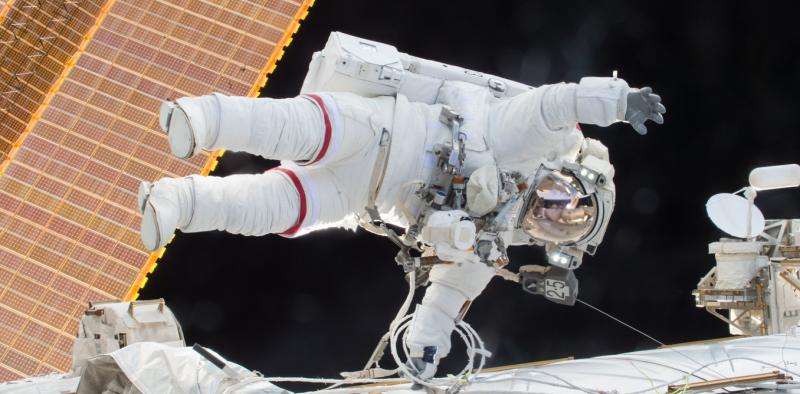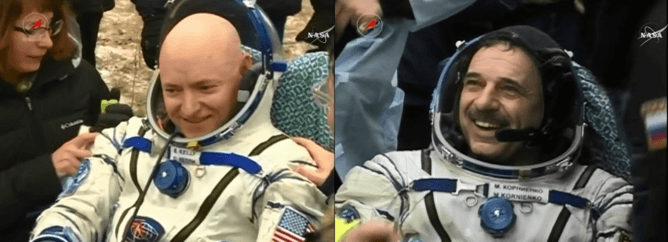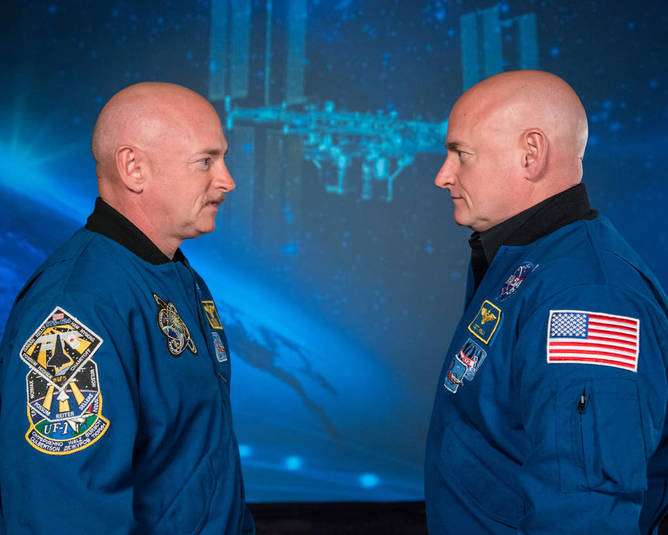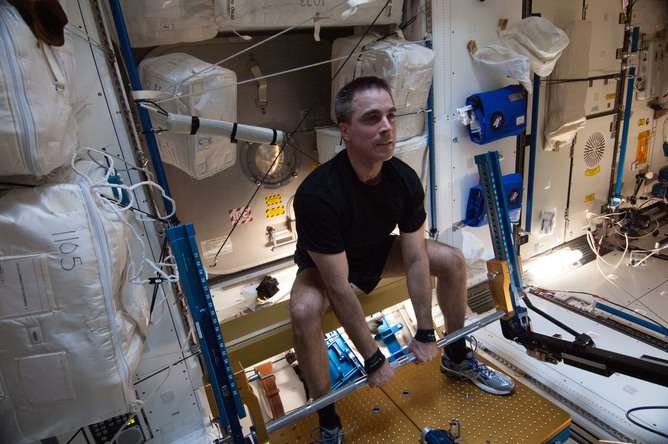Astronaut's return to Earth will prepare us for mission to Mars – here's why

Would you like to spend a year gazing down from the International Space Station? Before you pack your bag, you should think about what actually might happen to you in microgravity, away from the protection of the atmosphere and magnetosphere. Thanks to two astronauts who've recently landed back on Earth, we'll now be able to find out.
Commander Scott Kelly and flight engineer Mikhail Kornienko have returned home after 340 days on the ISS, twice as long as a normal stint aboard the station. This is the longest continuous duration on the ISS but falls short of the longest continuous space flight, which was set at 437 days by Valery Polyakov on board the Mir space station. The real significance of this long duration is that it is part of the One Year in Space mission, designed to learn more about the effects of long-duration spaceflight on the human body in preparation for human space flight beyond the moon.
One of the reasons Kelly was chosen for this mission is that he is an identical twin. While he has been on the ISS, his twin brother, Mark Kelly – himself a retired astronaut – has been back on Earth providing a comparison with Scott. Studying both of their bodies will enable NASA to understand the subtle deterioration of and changes in an astronaut's physiology caused by prolonged exposure to the microgravity environment.
The twin study is investigating both physical and mental characteristics. It examines how the harsh space environment effects organs including the heart and brain, the abilities of perception and reasoning, and the proteins, metabolites and microorganisms within the body. Both brothers have been undertaking tests throughout the year-long mission and will be further prodded and studied as Scott undergoes his recovery and rehabilitation living again with the constant pull of Earth's gravity.

In the long-run, this could have important implications for humanity's ability to visit other planets. Understanding the effects of prolonged space flight on the human body and mind will allow us to develop methods and treatments to improve recovery time. It will also allow us to minimise these effects to keep astronauts healthy and able during the years it would take to go to Mars and back.
Micro-gravity damage
One of the major effects is the change from Earth's gravity (measured as 1g) to micro-gravity (close to 0g). While you are stood or sat on Earth, your body is fighting against gravity, the muscle and bones are keeping your body upright and are able to defy gravity further by allowing you to walk, run and jump.While in micro-gravity, your body no longer has to act in this way and starts to degrade, just as your muscles weaken and atrophy if you don't regularly exercise them. Over time, astronauts' muscle fibres shrink, causing them to become weaker and less co-ordinated. Bones also experience mineral loss, especially in load-bearing areas such as the base of the spine, legs and ankles. This makes them weaker and more susceptible to fractures.

Prolonged time in micro-gravity also affects the pressure of the eyeball, damaging the eyesight of one in five astronauts. Other normal activities that are completely taken for granted can also be affected. When astronaut Chris Hadfield returned from the ISS he found that he could once again feel the weight of his lips and tongue and found he had to change how he was talking. The loss in body strength is why astronauts are carried out of the capsule and left to sit in supporting chairs after landing on Earth.
To combat these physiological changes while in orbit, astronauts undergo an exercise regime to minimise the effect of the degradation of muscle and bone, with specialised running and weight machines set up to be used in micro gravity. Other dangers that affect astronauts' bodies include radiation, which could lead to radiation sickness and an increased risk of cancer. Mental health can also be affected by home-sickness and problems resulting from isolation.
We don't know how long it will take Kelly and Korniyenko to recover from their long trip. But the results from the study will allow us to develop regimes and resources to protect future astronauts from the negative effects of prolonged space flight. This will allow humankind to travel further than ever. Next stop: Mars … and beyond.

Source: The Conversation
This story is published courtesy of The Conversation (under Creative Commons-Attribution/No derivatives).![]()




















